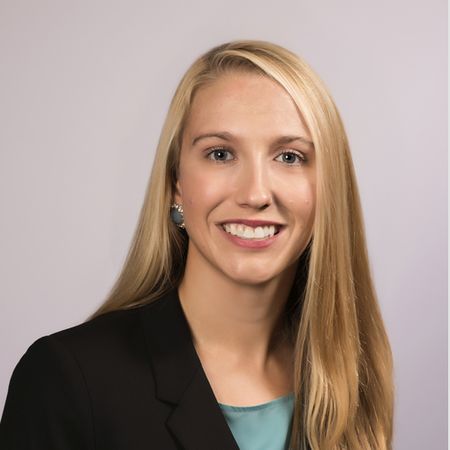Frequently Asked Questions
Coronavirus Pandemic Planning:
Holding Legally Compliant Board Meetings During this Time of Uncertainty
Below, we are listing answers or guidance we are providing in response to questions we have received relating to holding board meetings during this time of uncertainty. As time progresses, we will continue to provide updates or amended guidance, where necessary.
Can we hold a meeting without having anyone physically attend the meeting?
Yes. However, the manner in which Board members participate in the meetings will impact whether a Board member can vote during closed session. For this reason, participation by videoconference is recommended.
Physical attendance is not required at a public meeting[1] if no roll call votes are to be taken.
If roll call votes are taken, only those members who are in physical attendance or who are participating by videoconference may vote. In an emergency situation, roll call votes can be cast by electronic means other than videoconference only when a quorum of the Board is physically present at the meeting and the nature of the emergency is stated in the minutes.
See § 610.015 RSMo.
Can we do so in non-emergency situations? How do we do this?
Yes. Please be aware that you must give notice of the time, date, place of the meeting, its tentative agenda in a manner reasonably calculated to advise the public of the matters to be considered, and if the meeting is to be conducted by electronic means, the notice of the meeting must identify the mode by which the meeting will be conducted. Thus, if you are planning to conduct the meeting by telephone, internet chat, video conferencing, or other electronic venue, you must provide the public with the ability to attend the meeting and include the link or manner of access in your notice. See § 610.020.1, RSMo. Additionally, in a non-emergency situation, only those members who are physically present or participating via videoconferencing can participate in roll call votes.
Do we have to call it an “emergency” meeting to meet without a quorum being physically present?
No. Simply holding a meeting by electronic means does not require the designation of “emergency” to do so.
Can we conduct votes that require a roll call vote without a quorum of the board members physically present?
Missouri law does restrict when roll call votes can be taken for virtual participation in a Board meeting. Generally, roll call votes may only be taken by those Board members who are physically present at the meeting or who are participating via videoconference. In an emergency, those Board members who are participating through electronic means other than videoconference can participate in a roll call vote only if there is a quorum of the Board physically present at the meeting and the nature of the emergency is reflected in the minutes.
What precautions should be taken by Board members who are physically present at meetings?
Perhaps it goes without saying, but the board members who do physically attend meetings should continue to adhere to the safety precautions, such as hand washing, avoid shaking hands and other physical contact, staying at least six (6) feet apart, disinfecting all surfaces prior to and after the meeting, etc.
Can we limit the attendance of the public to the board meeting?
Yes. But, do so cautiously and you should consult with your district attorney before doing so to ensure legal compliance.
Missouri law requires that the time be reasonably convenient to the public and that the location of the meeting be reasonably accessible to the public. In emergency situations, however, a meeting may be held that does not meet these requirements. In this situation, the district should note the nature of the good cause justifying the departure from the normal requirements in the minutes. See § 610.020.4, RSMo.
Also, if physical access to the public is restricted, the school district must attempt to provide the public with an alternative method to observe the meeting, such as public broadcasting. If you decide to go this route, the school district must post a notice of the meeting on its website and must notify the public how to access that meeting. See § 610.020.1, RSMo. The school district must also provide notice as to how the public can access a meeting that is being held virtually by posting notice of how to access the meeting both at its principal office and on its website.
Do we have to provide a public comment opportunity where we limit the public’s physical attendance?
No. There is no legal requirement to allow the public to make public comments during a board meeting. This is not to say that you cannot or should not utilize your technology in a manner that may allow for this should you choose to do so.
How much notice do we have to give to hold an emergency meeting?
Under normal, non-emergency circumstances, Missouri law requires that notice be given at least 24 hours before the meeting. It does, however, allow for less notice in certain situations, including emergencies.
In those instances, the law requires: (1) that there be “good cause” for the untimely notice, and (2) to provide as much notice as is reasonably possible. Where this occurs, the board must document the rationale justifying the departure from the normal requirements in the meeting minutes. See § 610.020.2, RSMo.
Final Concept to Remember: Public Policy of Transparency
It is important to recognize that the legal presumption is that all meetings, records, votes, actions, and deliberations of a public governmental body, including a public school district board of education meeting, be open to the public unless otherwise provided by law. This is true even in emergency situations.
If challenged, the law expressly states that the presumption of openness shall be liberally construed that and the exceptions allowing closure of a meeting or records shall be strictly construed. This is carefully designed to promote the public policy of transparency by our governmental actors.
Thus, any decisions limiting the public’s physical access to the meeting or using the emergency meeting protocols should be made in good faith and not in attempt to circumvent the law.
That being said, these are clearly extraordinary times, and the district must take what steps are necessary to protect public safety and welfare, consistent with the guidelines being set forth by state and national governmental authorities, while still conducting the necessary business of the school district.
Does this apply to charter schools?
Charter schools are subject to the Sunshine Law, and charter school boards of directors must act consistent with the Sunshine Law even during emergency situations. Charter school boards are not elected, and therefore, have more flexibility to take roll call votes in virtual meetings even when members are not physically present and are participating by means other than videoconferencing. Otherwise, however, the same rules apply.
Have Additional Questions?
If you have any other questions, please do not hesitate to call your attorney.
[1] Chapter 610 of the Missouri Revised Statutes, also referred to as the Missouri Sunshine Act, governs public meetings held by public governmental bodies. Section 610.010.7, RSMo. defines “public meetings” as “any meeting of a public governmental body”¦at which any public business is discussed, decided, or public policy formulated, whether such meeting is conducted in person or by means of communication equipment, including, but not limited to, conference call, video conference, internet chat, or internet message board.” This does not include meetings to discuss ministerial items or gatherings for social purposes where there is no intent to avoid the purposes of the law.
Missouri Education – The law firm of Tueth Keeney Cooper Mohan & Jackstadt, P.C. (the “Firm”), has one of the largest and most successful education law groups in the country. The Firm regularly serves the legal counsel needs of approximately 150 school districts throughout Missouri. The Firm also has one of the largest school law practices in Central and Southern Illinois.

 Aigner S. Carr
Aigner S. Carr Celynda L. Brasher
Celynda L. Brasher Elizabeth J. Mooney
Elizabeth J. Mooney James R. Layton
James R. Layton Kate L. Nash
Kate L. Nash Kylie S. Piatt
Kylie S. Piatt Laura E. Hemmer
Laura E. Hemmer Lisa J. Berns
Lisa J. Berns Mandi D. Moutray
Mandi D. Moutray Margaret A. Hesse
Margaret A. Hesse Melanie Gurley Keeney
Melanie Gurley Keeney Michelle H. Basi
Michelle H. Basi Veronica E. Potter
Veronica E. Potter